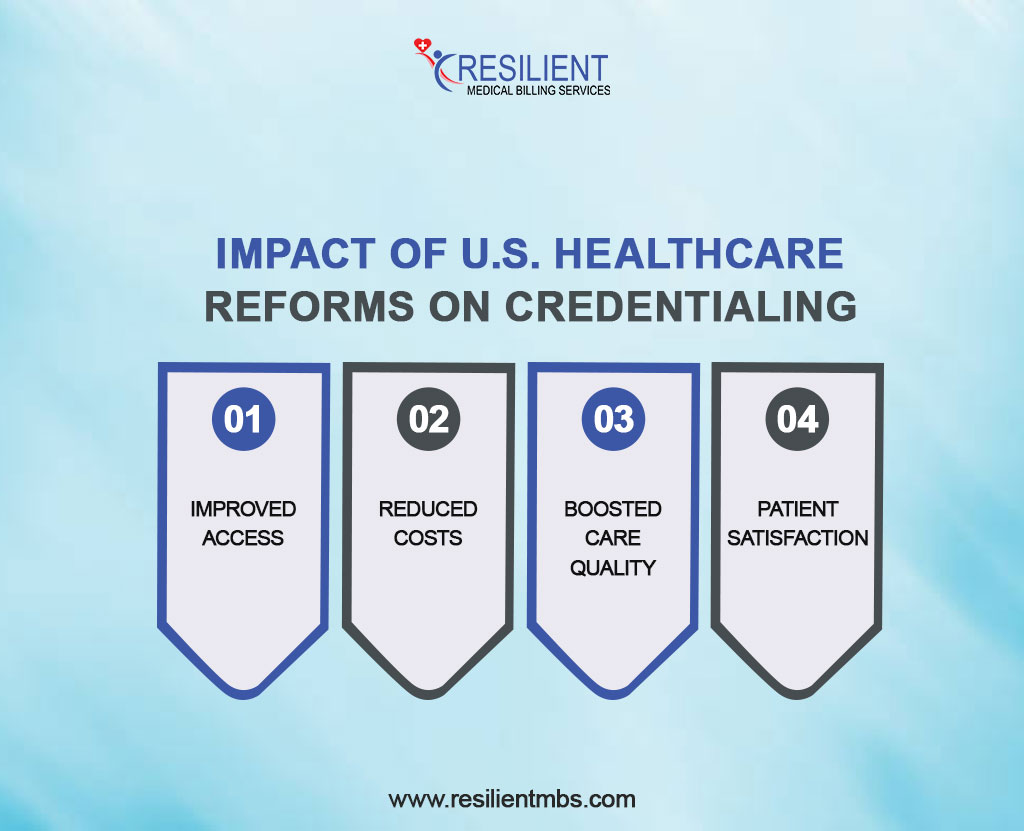Credentialing is the backbone of quality healthcare. It ensures that every provider treating patients is appropriately trained, licensed, and experienced. It’s how healthcare organizations protect patients and maintain trust.
In 2025, Medical Credentialing is witnessing a new era of provider verification. With rapid advances in technology, growing provider networks, and shifting regulations such as the No Surprises Act and CMS updates, healthcare organizations are reevaluating how they verify and onboard professionals.
These days, getting credentials isn’t just about meeting standards; it’s also about staying ahead. Processes that are organized and driven by technology are becoming increasingly essential for delivering better care, faster access, and a competitive edge in an industry that is constantly evolving.
Understanding Medical Credentialing in 2025
Medical credentialing is the process of verifying a healthcare provider’s qualifications to ensure they meet the standards set by hospitals, insurers, and regulatory bodies. It involves reviewing education, training, licenses, certifications, work history, and disciplinary records to ensure patient safety and quality of care.
By 2025, medical credentialing is expected to become more complex, distinguishing between clinical credentials for physicians and credentials for medical billing professionals. While clinical credentials validate
Medical expertise, billing credentials, a focus on coding accuracy, compliance, and reimbursement efficiency —all of which are essential for effective healthcare operations.
What Is Medical Insurance Credentialing And Enrollment?
Medical Insurance credentialing and enrollment are another key aspect, enabling providers to join insurance networks and receive reimbursements from payers like Medicare and Medicaid. As payer requirements become increasingly stringent, accurate credentialing is essential for ensuring compliance and optimal revenue cycle performance.
Key Changes in Medical Credentialing for 2025
In 2025, key federal and state policy changes are reshaping the medical credentialing landscape. CMS and state regulators are enforcing stricter timelines, compliance standards, and verification protocols to boost provider accountability. New rules require real-time data sharing to ensure that credentialing databases remain accurate and current.
States are adopting uniform credentialing criteria and centralized platforms to reduce redundancy and expedite the onboarding of providers, thereby emphasizing efficiency and patient safety.
Technology and Digital Transformation
AI and blockchain are transforming credentialing by automating verifications, reducing errors, and enhancing security. AI now handles license checks and sanctions monitoring swiftly, while blockchain creates secure, accessible digital records to prevent fraud. Cloud-based platforms offer real-time credential status and document management.
Medicaid Credentialing Changes
Medicaid and Medicare credentials are becoming increasingly similar, which makes dual enrollment easier and more consistent. To help more providers, states have made background checks stricter, applications more uniform, and handling times faster. With the rise of managed care, Medicaid agencies work closely with private insurance companies, and they require providers to maintain detailed, legally compliant records.
Impact of U.S. Healthcare Reforms on Credentialing

How Health Care Reform in the United States Is Shaping Credentialing Standards
Recent U.S. healthcare reforms are reshaping credentialing to improve access, reduce costs, and boost care quality. Faster and provisional credentialing options now support providers in underserved areas.
Value-based care requires broader criteria, encompassing outcomes, patient satisfaction, and ongoing education, with a focus on accountability.
Especially in remote and high-demand locations, credentialing procedures are simplified by centralized databases and standardized apps, thereby lowering time and costs and allowing for faster provider onboarding.
Integration with electronic health records and payer systems ensures the accuracy and up-to-date nature of provider data. Increased transparency, including public access to credentials and disciplinary records, builds patient trust and system accountability.
What Providers Need to Know
Changes in healthcare regulations mean that providers need to prepare for the new rules that will take effect in 2025. These rules will focus on timely entries, accurate data, and increased transparency in the credentialing process for providers. To avoid legal problems, it’s essential to stay informed about what CMS and payers report.
Best Practices for Compliance
- Regularly audit internal credentialing processes.
- Preparing for New Requirements and Deadlines
- Update documentation protocols consistently
- Assign dedicated staff or consultants to manage the credentialing workflow
- Stay informed through continuous education on payer policies and industry regulations
- Monitor official updates from CMS and commercial payers
Why Up-to-Date Credentials Matter
Accurate, current medical doctor credentials are essential for smooth medical billing and prompt reimbursement. Outdated or incomplete credentials can cause claim denials, payment delays, or network termination. Keeping all certifications and licenses current protects revenue and trust with payers and patients.
Closing Words
Staying updated on healthcare credentialing requirements is both a regulatory necessity and a strategic advantage. In a complex environment, expertise in this helps maintain compliance and smooth operations.
Though adapting to changes can be challenging, it leads to more accurate provider credentialing directories, efficient billing, and increased patient trust, creating a transparent and accountable system.
Providers should now review their credentialing and billing processes to prepare for the upcoming year. Early action helps avoid complications and ensures continued success.
Contact Resilient MBS now for professional help navigating these changes and verifying your credentialing and billing procedures remain compliant. Our staff is qualified to carefully and precisely lead you through the change.










